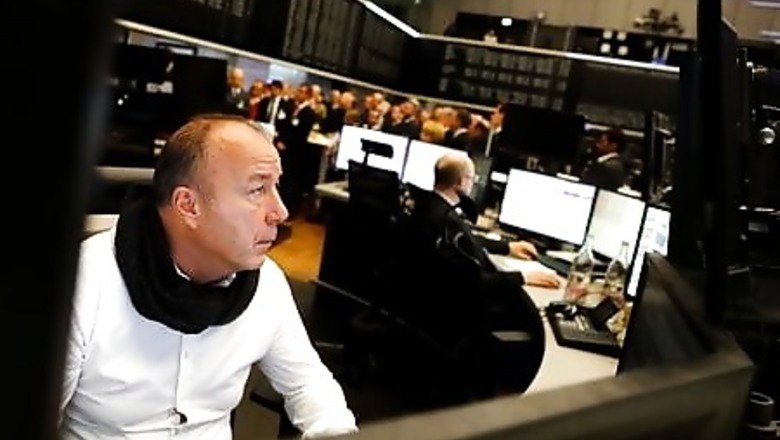
views
NEW YORK Oil and global equity markets fell and the dollar steadied on Thursday as a poor reading of the U.S. labor market added to concerns that the economic recovery in the United States might be slower than previously expected.
A surprise jump in U.S. jobless claims to more than 1 million in the week ended Aug. 15, reported on Thursday, reinforced bearish Federal Reserve comments on Wednesday that said job growth had slowed.
The new jobless claims reading was well above the forecast of economists polled by Reuters that expected 925,000 new applications in the latest week.
“Anytime there’s concern about the economic recovery, that always hurts,” said Tim Ghriskey, chief investment strategist at Inverness Counsel in New York.
While the long-term outlook for the economy is good, the latest jobless number and Fed comments show “economic weakness is not over by any means,” he added.
The concerns hit value and economically sensitive stocks, but have left tech and tech-related stocks relatively untouched.
Oil prices fell, as major producers warned of a risk to demand recovery.
Brent crude futures were down 79 cents to $44.58 a barrel, while U.S. crude futures slid $1.29 to $41.64 a barrel.
European shares and U.S. cyclical stocks continued to weigh on the MSCI’s benchmark for index global equity markets. The index was down 0.24% to 571.95, while its index for emerging markets stocks fell 0.5%.
Europe’s broad FTSEurofirst 300 index dropped 1.15% to 1,418.1.
On Wall Street, the Dow Jones Industrial Average fell 0.03%, the S&P 500 lost 0.07% and the Nasdaq Composite added 0.3%.
The dollar had been gaining ground since hitting a 27-month low it hit on Tuesday. On Thursday, the dollar index was down 0.002%, with the euro unchanged at $1.1836.0.024%.
The Japanese yen strengthened 0.15% versus the greenback at 105.95 per dollar.
Wall Street was knocked from its recent highs on Wednesday after the Fed’s minutes from its July meeting spooked investors by showing that the swift labor market rebound seen in May and June had likely slowed.
The S&P 500 had reached an all-time high earlier in the week as prices recovered to their pre-pandemic levels.
Interactive Graphic: Emerging markets http://tmsnrt.rs/2ihRugV
World stocks and oil vs COVID-19 https://fingfx.thomsonreuters.com/gfx/mkt/ygdpzdzwepw/Pasted%20image%201597667916332.png
The sudden bearishness spilled into Asian markets overnight and continued in the European session, although shares started to recover as the morning progressed.
Several Fed policymakers said they may need to ease monetary policy to help get the economy through the coronavirus pandemic.
“It’s easy to forget that we’ve just experienced one of the largest and most severe economic shocks on record,” said Kaspar Elmgreen, head of equities at Amundi.
“This story is not over yet, despite what the markets might be indicating,” he said.
“We are navigating a ship here with unusually low forward visibility and a very wide range of outcomes.”
Spot gold rebounded overnight and after the U.S. jobless data on demand for the safe-haven asset.
Spot gold prices was up 0.8% at $1,944.37 an ounce.
Disclaimer: This post has been auto-published from an agency feed without any modifications to the text and has not been reviewed by an editor




















Comments
0 comment